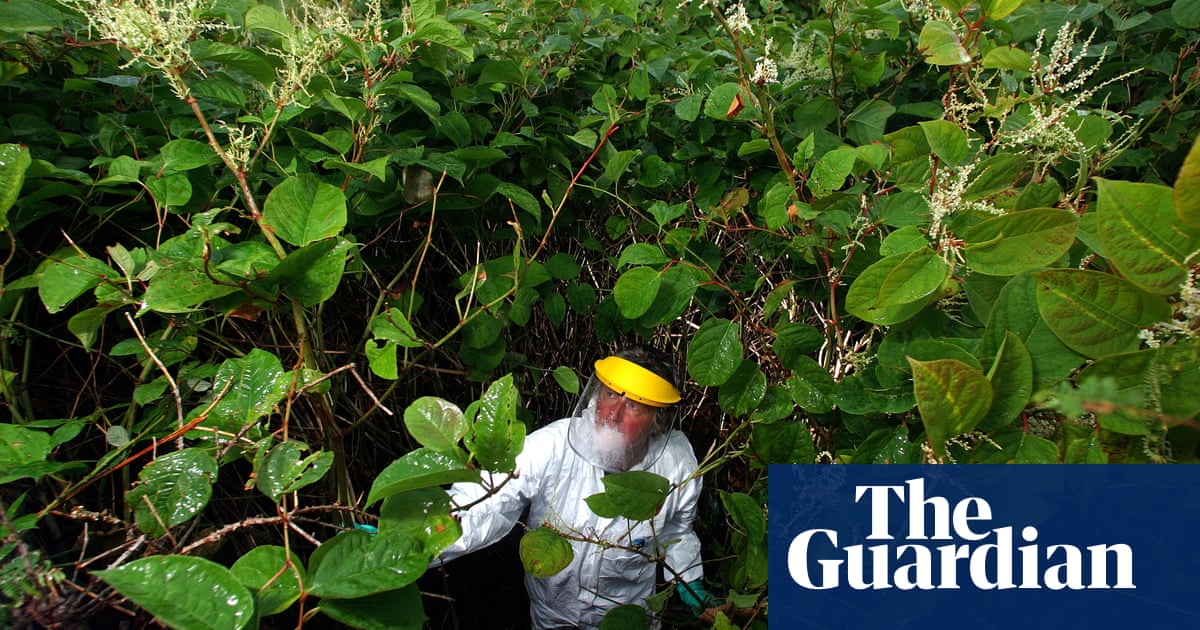The Hidden Menace of Japanese Knotweed: A Property Owner's Nightmare
Core Concepts
The author highlights the economic and structural threats posed by Japanese knotweed to property owners, emphasizing the challenges in eradicating this invasive plant species.
Abstract
Japanese knotweed, a seemingly innocuous plant, has become a significant threat to property values in the UK. Its rapid growth and resilient nature make it difficult to eradicate completely. The spread of knotweed has led to legal battles, financial losses, and extensive efforts to control its invasion. Despite various methods employed to combat it, including herbicides and encapsulation techniques, complete eradication remains elusive. The impact of knotweed extends beyond property devaluation, affecting ecosystems and biodiversity as well.
The war on Japanese knotweed
Stats
Paul Ryb awarded £50,000 in damages due to Japanese knotweed infestation.
5% of UK homes affected by knotweed potentially lose £20bn in collective value.
Sites for the 2012 Olympics required £70m cleanup due to knotweed presence.
Glyphosate is the primary chemical used for controlling knotweed growth.
UK's knotweed management industry generates over £165m annually.
Quotes
"Knotweed spreads slowly but adamantly, taking over land until no other plants survive."
"Knotweed is nearly indomitable; it can be controlled but not easily slain."
"Some developers just want the knotweed gone completely."
Key Insights Distilled From
by Samanth Subr... at www.theguardian.com 05-16-2023
https://www.theguardian.com/environment/2023/may/16/the-war-on-japanese-knotweed
Deeper Inquiries
How can society strike a balance between eradicating Japanese knotweed and preserving biodiversity?
Society can strike a balance by implementing integrated management approaches that prioritize both eradication of Japanese knotweed and preservation of biodiversity. This can involve strategies such as targeted herbicide application, mechanical removal, biological control methods, and habitat restoration. By carefully assessing the impact of each method on both the target species and surrounding ecosystem, decisions can be made to minimize harm to native flora and fauna while effectively managing the invasive species.
What ethical considerations should be taken into account when using chemicals like glyphosate for managing invasive species?
When using chemicals like glyphosate for managing invasive species such as Japanese knotweed, several ethical considerations must be taken into account. These include ensuring that the benefits of controlling the invasive species outweigh potential risks to human health and the environment. It is essential to use these chemicals in accordance with regulations and guidelines to prevent unintended harm to non-target organisms. Additionally, transparency in decision-making processes, informed consent from stakeholders, and ongoing monitoring of impacts are crucial ethical aspects to consider when using chemical treatments.
How does the global perspective on invasive species management differ from country to country?
The global perspective on invasive species management varies from country to country based on factors such as ecological diversity, economic priorities, regulatory frameworks, cultural attitudes towards nature conservation, and available resources. Some countries may prioritize rapid eradication of invasive species due to their detrimental effects on agriculture or native ecosystems. In contrast, others may focus more on containment strategies or adaptive management approaches that acknowledge the long-term presence of certain invasives. International collaboration through conventions like CITES (Convention on International Trade in Endangered Species) also plays a role in shaping global perspectives on invasive species management by promoting cooperation among nations facing similar challenges.
0
